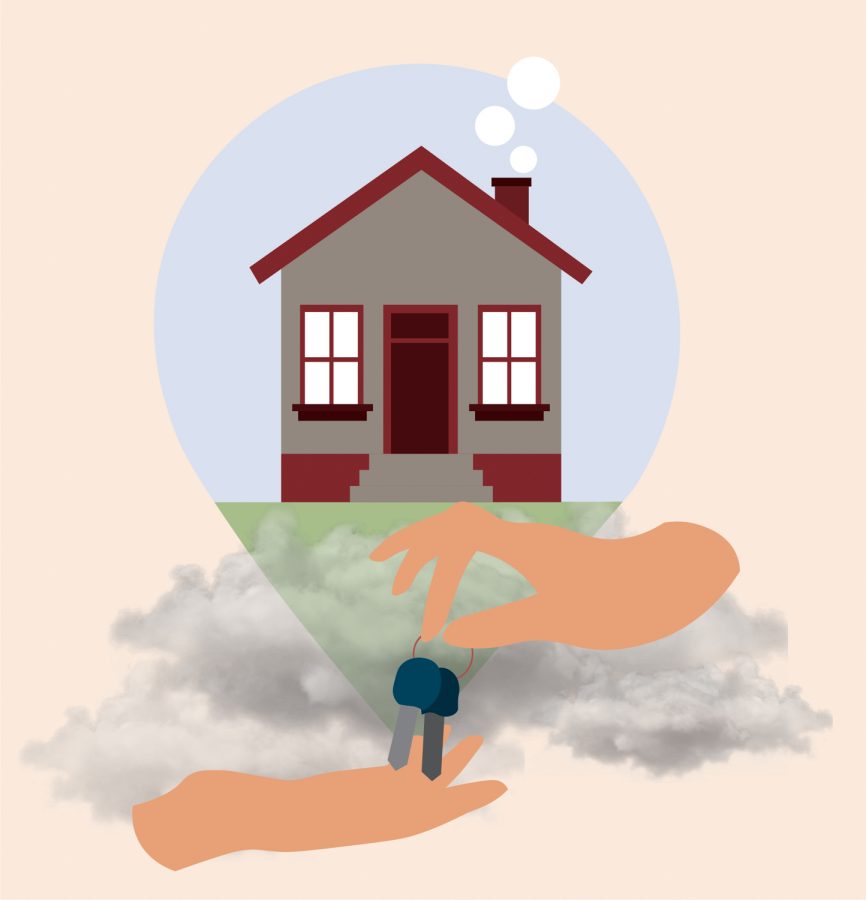Landlord leaves lessees without water
Students-tenants left without heat, water for extended periods during winter; landlord unresponsive to basic needs
“The first issue that happened was the heater went out, and he knew the heater had to be replaced in the fall. We texted him several times about it but he wouldn’t respond,” Catherine said.
April 11, 2022
*Editor’s note: The name of one source has been changed to protect the individual’s identity and prevent possible retaliation from landlords.
During a freezing winter morning in February, Catherine* and her five roommates woke up at 10 to brush their teeth but discovered the running water was not working.
They could not shower or use the restroom, so they contacted their landlord right away. Despite this communication, she said they were left without water for over 24 hours.
Catherine and her roommates have been living in their house since fall 2021. However, she said they did not expect to be put in difficult situations because of their landlord’s failure to help them.
“The first issue that happened was the heater went out, and he knew the heater had to be replaced in the fall,” Catherine said. “We texted him several times about it, but he wouldn’t respond.”
Catherine said everyone in the house had to double up with blankets and jackets, but it was not until January, when the temperature went below 10 degrees, that they decided enough was enough.
When the group was without water for over 24 hours, the landlord was unresponsive. The landlord only complied when Catherine’s parents called him and got into a heated argument, she said.
“Anything that we communicate with him directly on, he doesn’t really take seriously unless we get our parents involved, which is super annoying,” Catherine said.
The next day, the landlord initially said he was going to come by to fix the problem around 4 p.m., but he changed his mind because his wife had made dinner. Catherine said he did not come by until 7:30 p.m.
After trying to fix the issue himself to no avail, Catherine said the landlord eventually called the city for help. The issue was resolved in less than two hours.
Since the water incident, Catherine said she and her roommates have encountered other problems. At the moment, the landlord has been giving people tours of the house without the consent of Catherine and her roommates.
There is only a 24-hour notice, she said.
“My roommate had been actually exposed to COVID, so I was on the phone with [the landlord] and said it wasn’t a good idea, and he was like, ‘oh, it’s fine, we’ll just wear masks,’” Catherine said.
Renters have various rights that landlords cannot infringe upon, according to Washington State law. Landlords cannot enter a tenant’s rental unit whenever they want, they can only shut off utilities to make repairs, and they cannot rent a property with existing code violations.
Catherine said their landlord does not work alongside other employees, so he is the only person they can contact when having issues with the house.
“When we were dealing with him, we really didn’t know what our rights as tenants are because this isn’t something that we’ve had to deal with before,” Catherine said.
Catherine did reach out to the Whitman County Public Health because not having running water for a certain amount of time is considered a safety risk. However, they did not get back to her, she said.
Pullman is filled with student tenants renting apartments, some of whom go through property management companies. Others rent with individuals who own property around the city, just as Catherine did.
If students are facing landlord problems, ASWSU Student Legal Services offers free 30-minute consultations with an attorney, said Albert Lucas, Student Legal Services director.
Lucas said they can provide advice to any student facing issues with landlords who are not associated with WSU.
“If a student lives in a WSU-owned apartment like Chief Joseph or Chinook, we would not be able to help them,” Lucas said.
All consultations are confidential, and normally, they give references on how students can take action, he said.
Catherine said she and her roommates are moving out of the house in May after the spring semester ends. However, they wish landlords that take advantage of student renters are held accountable.
For tenants wishing to learn more about their rights, they can visit WashingtonLawHelp.org.











